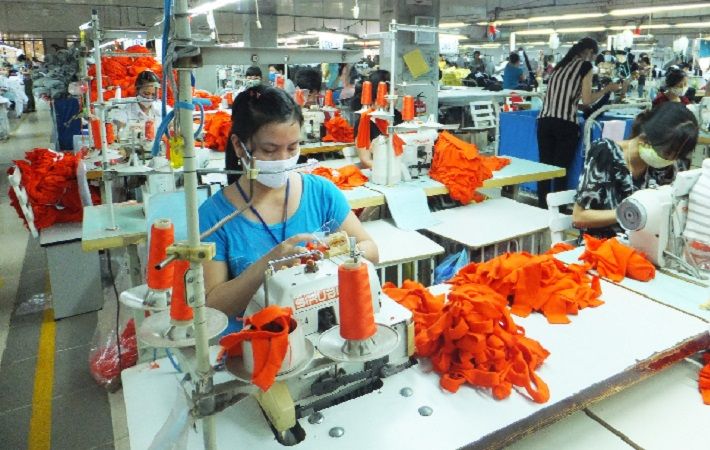
The latest report from the Vietnam Textile and Apparel Association estimated that the textiles and garment industry will reach its target of $39 billion in export revenue this year, equal to the 2019 figure.
However, the COVID-19 crisis has hit the industry hard. In addition to factory closures and lost incomes, the pandemic has accelerated the drivers and megatrends that are changing textiles and garment production and work profoundly. These include automation and digitalisation as well as the introduction of greener and cleaner production to mitigate climate change.
As part of the new two-year project starting in January 2022, the ILO will support the government, employers’ and workers’ organisations in Vietnam to understand what skills the industry and its workers will need now and in the future. The project will focus on those at highest risk of losing their jobs as a result of the COVID-19 crisis and the increased automation and digitalisation in the industries. This is an important step towards building a more resilient, inclusive and sustainable industry with decent work opportunities for more women and men.
“Timely investment in skills can help speed up the economic recovery, a safe return to work, reduce the career scarring effects of prolonged unemployment and skills mismatch, and take advantage of opportunities that may otherwise dissipate over time,” ILO Vietnam officer-in-charge, Nilim Baruah, said in a statement.
The Netherlands believes that a sustainable textile value chain is a precondition for a healthy recovery from the impact of COVID-19.
“Sustainable business models, including employability and skills development, contribute to the various current and future challenges of the industry,” said Ambassador of the Kingdom of the Netherlands, Elsbeth Akkerman. “I am proud that with this project we are taking a next step towards a future proof and sustainable textile and garment sector.”
The new project is guided by the ILO Centenary Declaration for the Future of Work (2019), the ILO Global Call to Action for a Human-Centred Recovery (2021) and the recent International Labour Conference resolution concerning skills and lifelong learning. It will apply lessons learned from similar ILO garment sector skills anticipation projects in the garment sector in Brazil, Ethiopia, Jordan and Peru, and it will build on the achievements of past ILO skills development programmes in Vietnam.
The project will be implemented in close collaboration with the IFC-ILO Better Work Vietnam programme, and the findings and achievements in Viet Nam will be shared with other Member States of the ILO through the creation of a regional knowledge platform on future skills needs in textiles and garments in Asia and the Pacific.
Fibre2Fashion News Desk (KD)